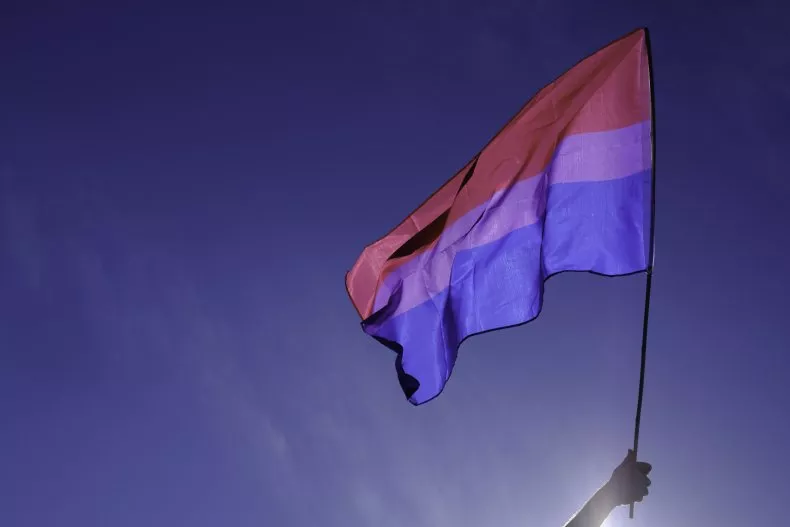Bisexual people—those who are sexually attracted to men and women—have the worst health outcomes of any sexuality, scientists found.
While lesbian, gay and bisexual (LGB) patients as a whole experience health outcomes twice as poor as heterosexual people, bisexuals are the worst affected among this already marginalized community, according to a new study published on July 24 in the Journal of Sex Research, with bisexual women four times more likely than heterosexuals to suffer from long-term issues.
The researchers suggest that this may be a result of biphobia, or discrimination from heterosexuals as well as gay and lesbian people.
“Minority stress could put bisexual individuals at increased risk of psychological problems and negative behaviors—and ultimately at greater risk of poorer health outcomes,” Carrie Llewellyn, head of the Department of Primary Care & Public Health at Brighton and Sussex Medical School and co-author of the paper, said in a statement.
“Our results suggest that there is a greater prevalence of long-standing physical health conditions amongst people identifying as LGB. Furthermore, nearly all LGB individuals across all gender responses in the survey felt less confident in managing their own health.”
The researchers used data from more than 836,000 adults from Ipsos MORI’s 2015/16 English General Practice Patient Survey (GPPS), of which 23,834 people defined their sexuality as LGB. The data was gathered from a population representative of 99 percent of the adult population in England, but it cannot separate marginalized sexual orientations who are cisgender, transgender and non-binary.
They found that LBG people experienced a much more negative self-reported quality of life, especially regarding long-term physical and mental health problems, which LGB people were twice as likely to experience. Bisexual women experienced these issues worst, being four times more likely than straight people to suffer from long-term physical and mental health problems.
“We found consistent evidence indicating worse overall health reported among people identifying as LGB compared to heterosexual samples, with bisexual people experiencing the worst outcomes,” the authors wrote in the paper. “Bisexual people had the poorest physical and mental health in this study, which may be due to the additional marginalization of bisexual experience.”
Long-term physical and mental health problems were more than twice as likely to be reported for people within LGB groups compared to heterosexual groups—except for bisexual women, for whom the odds were more than four times greater.
“While it is well-established that persistent health disparities exist among LGB patients, very little is known about the specific experiences of bisexual people,” Llewellyn said.
“Our study goes some way to addressing this gap—finding that bisexual people, especially women, have the worst experiences in health care and the worst health outcomes of any sexuality.”
One drawback of the study is that it relies on the patients’ self-reporting their own health conditions, which may not be clinically diagnosed or accurate. However, the study is an important marker of the marginalization of bisexuals among heterosexual people and other LGB people.
“It is important to recognize that interventions addressed to the LGB population as a whole may neglect the needs of subgroups further marginalized within this community, such as bisexual people,” Llewellyn said.
“A better understanding of the different spectrum of health needs across LGBTQ+ subpopulations is required to provide adequate and equitable health care services for all.”











